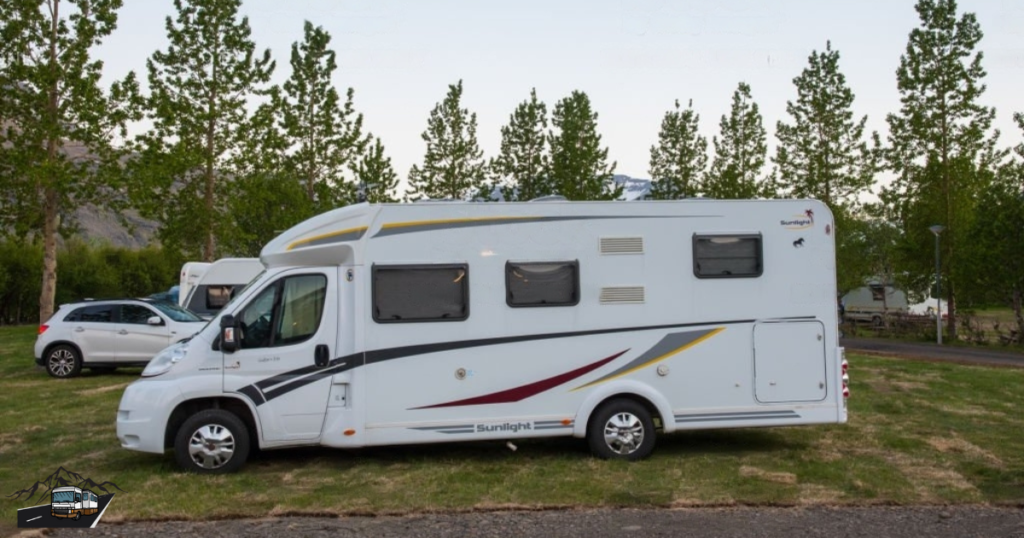Will RV antifreeze kill grass? Consider the following scenario: a peaceful winter morning, your RV snugly tucked away for the season, and a lush green lawn stretching out beside it. The question that may arise is whether RV antifreeze will disrupt this picturesque scene. We’re unraveling the mystery surrounding RV antifreeze and its potential effects on your prized lawn in this guide.
I. Understanding RV Antifreeze: Composition and Purpose
Let’s get acquainted with this magical liquid before we get into the compatibility of RV antifreeze with your lawn. RV antifreeze is available in two formulations to protect plumbing systems in freezing temperatures: ethylene glycol and propylene glycol. The main distinction is in their toxicity levels. Ethylene glycol, which is found in antifreeze, is toxic to humans, animals, and plants. Propylene glycol-based RV antifreeze, on the other hand, is less harmful to the environment and is not toxic to living organisms.
II. The Great Debate: Can RV Antifreeze Harm Your Lawn?
Now, the moment of truth will using RV antifreeze pose a threat to your lawn’s health? The answer, like most things in life, is nuanced. The potential impact depends on factors such as the type of antifreeze used, its concentration, and how diligently you handle the application.
1. Antifreeze Type Is Important:
The type of antifreeze is an important determinant. The risk to your grass is significantly reduced if you use RV-specific antifreeze formulated with propylene glycol. The toxicity is low enough that even accidental exposure is unlikely to result in disaster.
2. Diligence in Dilution:
RV antifreeze is usually diluted with water before use. This improves its efficacy while also lowering its potential impact on the environment, including your lawn. Dilution ensures that the antifreeze concentration per application is kept to a minimum.
3. Application Caution:
Use extreme caution when applying RV antifreeze near your lawn. Avoid any direct contact with the grass. Before applying the antifreeze, it is a good idea to cover the area with plastic sheets or tarps.
4. Quick cleanup is essential:
Accidental spills occur. If you notice any antifreeze on your lawn, act quickly. Water the area thoroughly right away to dilute it. This helps to disperse the antifreeze and reduces its effects.
III. Guarding Your Green Haven: Tips for Lawn Safety
Your lawn’s health is a priority, so take the following precautions to ensure it thrives even in the presence of RV antifreeze:
1. Choose Wisely:
Use RV-specific antifreeze that contains propylene glycol. This option reduces risks while increasing antifreeze compatibility with your lawn.
2. Dilute Correctly:
For dilution ratios, follow the manufacturer’s instructions. Following these guidelines ensures a proper balance between antifreeze effectiveness and potential lawn impact.
3. Mindful Application:
Use caution during the application process. Avoid sprinkling antifreeze on your lawn. Protect the grass with protective coverings to ensure that the antifreeze lands only where it is supposed to.
4. Rapid Reaction:
It’s best to respond quickly to accidental spills. Don’t panic; instead, thoroughly wash the affected area with water. This prompt action reduces any lingering effects.
5. Consider Alternatives:
If the thought of antifreeze near your lawn makes you nervous, think about other ways to winterize your RV. Compressed air blowouts and environmentally friendly antifreeze options are worth investigating.
FAQs: Clearing Up the Doubts
Q1: Is propylene glycol antifreeze really safe for my lawn?
A1: Yes, propylene glycol antifreeze is generally safe for lawns when used as directed and with proper dilution. Its low toxicity reduces the risk of harm to grass and other plants.
Q2: Can I use leftover RV antifreeze in my garden?
A2: It’s not recommended. While propylene glycol-based antifreeze is less toxic, it’s still not designed for garden use. Dispose of unused antifreeze properly.
Q3: What should I do if I accidentally spill RV antifreeze on my lawn?
A3: Act quickly. Dilute the spilled area with water to minimize the concentration of antifreeze. This helps prevent potential harm to your grass.
Q4: Are there eco-friendly alternatives to RV antifreeze?
A4: Yes, there are environmentally friendly antifreeze options available that are less harmful to the environment. Research and choose the best option for your needs.
Conclusion
As you embark on the winterization journey for your beloved RV, rest assured that RV antifreeze is not inherently harmful to your lawn. When used appropriately, its low toxicity and diluted composition make it a less threatening companion than its automotive antifreeze counterpart. With vigilance, mindful application, swift cleanups, and the insights from our FAQs, your lawn can continue to thrive alongside your cherished recreational vehicle.
Remember, the goal is not just a protected RV but also an enchanting, flourishing lawn. So, go ahead and embrace your winterization tasks, knowing that the beauty of your outdoor haven is safe and sound.



